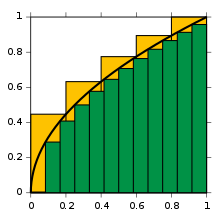Instead of typical resolutions for 2015, I decided to introduce small habits into my everyday life to improve my overall well-being. My goal is to integrate all of these practices to the point where they become a part of my core character. Success means that I practice these habits more often than I did last year (trust me, there is a huge grading curve). So without further ado, here is a list of 5 seemingly small habits that would make a big impact on our lives.
Setbacks are inevitable. Instead of negative talk, try to understand more about what happened. Where was the point of weakness? What can be done to improve the situation? How can this problem be prevented in the future? When is the next opportunity? The answers to these types of questions will clear a better path to our goals, and impart some valuable lessons along the way.
2. Take care of yourself
When we take care of ourselves, we are able to function at optimal levels. Without adequate rest, our performance drops. A healthy diet and exercise rejuvenates our energy levels. Meditation improves our focus. Journaling clarifies our thoughts. Okay, so maybe this isn’t a “small” habit in itself, but we can do small things everyday to make sure we have our own backs.
3. Introduce challenges everyday
Do one thing each day that pushes the boundaries of our comfort zones. Maybe it is increasing the heaviness of the weights during a workout or striking up a conversation with a stranger. On a bigger scale, it could be heading up a new project or trying a new activity. Growth happens when we stretch out into the unknown and test our limits.
4. Be grateful
There is always something for which we can be grateful. Instead of letting resentment, anger, frustration, or discontent take over our mindset, let us direct our energy toward the things we are glad to have in our lives. When we practice gratefulness, our problems become less significant and we get closer to learning the art of contentment.
What small habits have made a big impact on your life?
5. Clear the clutter
Both physical and mental spaces can become congested with clutter - our homes, our offices, our thoughts, our finances, our schedules, our relationships. It is important to increase our awareness of what we allow into those spaces for the sake of sanity. Taking the time to purge the extra and unnecessary leaves us room to enjoy and focus on our priorities.What small habits have made a big impact on your life?



